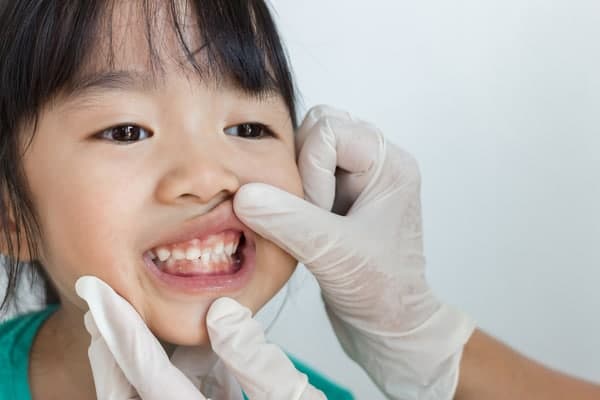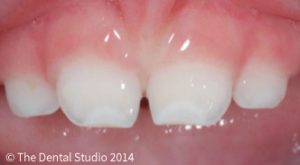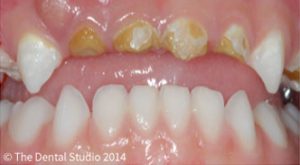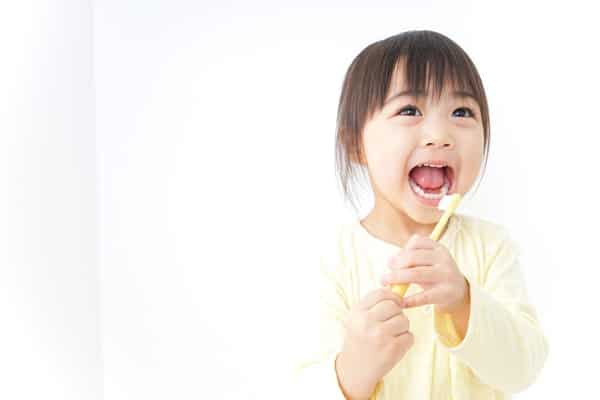Paediatric Dentist Singapore - Dental Check Up For Kids
Paediatric Dental Check
Your Infant’s First Dental Visit
The American Academy of Paediatric Dentistry recommends all children have their first dental check-up by their first birthday. However at such a young age, your child’s understanding of the world is limited. Infants this age may be fearful of strangers and of being separated from their caregivers.
With simple instructions, mothers can help position their children properly and securely for a dental examination.
Our paedodontist and dental team are trained in the techniques of paediatric clinical handling. Directing the parent to help with this is necessary to ensure a safe and thorough examination of the pre-cooperative child.


Your Toddler’s First Dental Visit
As children grow older and progress into toddlerhood (around ages 2-3), the dental examination takes on a different role – one of learning and direction.
The primary goal is to examine your child by gaining trust and cooperation.
If this is the first visit, your child will be orientated to the dental setting and shown the dental chair and examination tools in a fun and non-threatening way. After an examination involving “counting teeth”, x-rays will be taken if necessary. A risk assessment and treatment plan will then be discussed, along with instructions on oral hygiene, diet and prevention.
Depending on the situation and cooperation of your child, the first visit may be brief and involves no treatment.
This is because the first visit is the key to instilling a positive dental attitude in both child and parent, and in setting the tone for subsequent treatment visits and reviews.
How Do I Prepare My Child for the First Dental Visit?
DO’s:
- Show your child before-hand what a trip to the dentist means, using online resources, books or apps. A good one would be Peppa Pig The Dentist video or book
- Practice the examination at home before-hand, by asking your child to open wide while you place a toothbrush in his mouth like a dental mirror
- Before the visit, tell your child that she is going to the dentist to have her teeth “counted” and to learn how to brush her teeth better
- Make sure that your child is well-rested and fed with a light meal before the dental visit
- If your child has had food, please brush his teeth before the visit
- Bring along your child’s favourite toy/gadget if it will help to calm her during the examination
- Be creative, encouraging and fun!
DONT’s:
- Threaten a misbehaving child by promising him a trip to the dentist
- Use words like “pain”, “drill”, “needle”, “injection”, and “pluck out all your teeth” before and during the dental visit
- Tell your child that you yourself are afraid of dentists, as this fear will certainly be transmitted to them
- Feed your child too much food before the visit as there is a risk that she may throw up in an unfamiliar environment
- Come for the dental visit if your child is feeling unwell and thus not in the best of moods
- Lie to your child that you are bringing him to the playground or shopping, when in fact you are coming for the dental visit
- Wait until your child complains of pain before bringing her for a dental examination!
How Will My Child Behave During The Dental Visit?
If you followed the Do’s and Dont’s listed above, you would have prepared your child well for the dental visit. It is important to create a relaxed and friendly atmosphere, and although the dental team is trained to provide this, parents also have a large role to play.
Primarily, any fear and anxiety you may have regarding dental treatment will likely be passed on to your children if you express it to them. Sometimes, however, no matter how well you prepare your children, they may simply be fearful and unwilling to cooperate.
The dentist will assess the situation and apply the appropriate behaviour management techniques to attain your child’s cooperation. This can be as simple as showing your child what to expect in a step-by-step manner or modelling the desired behaviour with an older sibling. Other times, boundaries may need to be set using a firm teacher-like tone, or parents may need to leave the room so that the dental team can gain the child’s full attention.
Ultimately the goal of behaviour management in paediatric dentistry is to examine and treat children in a safe, supportive and efficient manner while alleviating fear and instilling a positive attitude in them and their parents.
Real-life Case Study: One-year-old Anabelle
Anabelle was just one year old when she was brought for her first dental check-up. At that time she only had 8 baby teeth, but her mother recognised the need to have them examined. This is what her upper front teeth looked like.
Can you tell what is wrong with image A?
Although they looked fine to the passing eye, a dental examination revealed the presence of whitish, opaque discoloration at the tips of the two front teeth. See them now? If not, sit further back from the screen and look again.
This is the beginning of dental decay, or Early Childhood Caries.

Left untreated by her 3rd birthday, Anabelle’s front teeth will look like image B.
Severe Early Childhood Caries results in pain, swelling (look at the gum on the upper left), fever, loss of appetite and sleep, and even systemic infection.
Not to mention a very unaesthetic smile. By this stage of the disease, a child becomes understandably far more difficult to treat. Fortunately, it was not too late to recognize the habits that were causing this disease.
Anabelle’s mother was able to change these habits, and stop the decay in its tracks before it progressed to become severe.


YES, DENTAL DECAY IS A DISEASE
But if it is diagnosed early, it can be prevented and stopped. However in Singapore, 50% of all children by age 6 are affected by Early Childhood Caries, making tooth decay the most prevalent childhood disease in Singapore.
This is why here at The Dental Studio, we believe that preventive dental care is of utmost importance for your child. We follow the guidelines set out by the American Academy of Pediatric Dentistry recommending that every child should have their first dental visit by their first birthday.
From this point on, we seek to encourage and inculcate both parent and child with a positive attitude and mindset towards dental health. By identifying early the risk factors unique to each and every child, dental disease becomes preventable. We strive to give all parents the tools and education needed to ensure this. And good oral habits will contribute towards a bright and confident smile that will follow your children through life.


